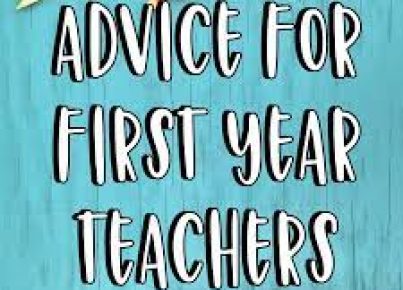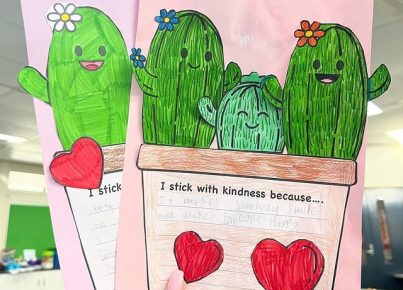To make it in the fast-paced, stressful world of K-12, you must be able to hold your own. This means having the skills and knowledge that it takes to impact student learning and outcomes positively. As a K-12 teacher, what do you need to know? Don’t worry, we have you covered.
In this short piece, we will discuss the 34 questions that that K-12 teacher should be able to answer. Some questions will be basic terms and concepts that you must understand, and others will be pedagogical strategies that you must be able to employ, such as balanced assessment and co-teaching.
What is Balanced Assessment? A philosophy of educational assessment that recognizes that a variety of measures must be used for the teaching and learning process to help students reach their intellectual potential. This includes the use of formative assessments, summative assessments, authentic assessments, standardized assessments, etc.
What is Connected Learning? Is a form of personalized learning where a person pursues something of interest to them, with the aid of a caring support system. In the process of pursuing connected learning, new opportunities and possibilities open up for them.
What is Co-Teaching? Is having two or more certified teachers in the classroom sharing responsibility for teaching all or some of the students assigned to the classroom. These teachers work together to plan and deliver instruction, assessment, remediation, etc.
What is Critical Literacy? Is a collection of dispositions and skills that cultivate innovative teaching, critical thinking, and active inquiry. Critical literacy assists students in thinking critically about the things that they read, instead of just brushing the surface.
What is Education Research? An organized strategy for asking, answering, and effectively reporting a question that is related to the field of education.
What is an Exit Exam? An assessment that students must pass to pass a course, be promoted to the next grade level or receive a diploma.
What is GED? Is an assessment that is made up of four subject area test which if passed, signifies that the test taker has high school level academic skills.
What are Multiple Measures? The use or varied indicators and sources of evidence of student learning. This evidence is gathered at intermittent times, within and across subject areas.
What is a Pacing Guide? A document created by school district administrators to assist educators in staying on track and ensure the continuity of curriculum across schools within the district.
What is a Paraprofessional? An educator who is delegated to perform certain educational tasks within and outside of the classroom but is not yet licensed as a teacher.
What is Remediation? A form of education that is provided to students who need more instructional support to master the competencies in subjects such as math and reading.
What is School Choice? Is an education policy that permits education funds to follow the pupil to the K-12 school or service provider that best fits their needs. Possible placements include public schools, private schools, charter schools, homeschools. Any learning environments that parents feel meet the educational needs of their children.
What is a School Within a School? Is a concept that is used for reorganizing schools, especially high schools, and the dynamics within them. Also called small schools, their optimal size varies, they are usually defined as schools with enrollments between 500-900 students.
What is Socioeconomic Status (SES)? Is a collective assessment of a persons economic and sociological standing. Many students from low-SES backgrounds face socio-emotional instability.
What is a Student-Led Conference? Is a type of parent-teacher conference in which the student gives their parents updates on what they have been learning, what their goals are, and provides insights into what type of learner they are.
What is Cognitive Development? Is the creation of increasingly complex thought processes, including self-regulation, remembering, perceptual skills, language learning, problem-solving, and decision-making, from childhood through adolescence to adulthood.
What are Wraparound Services/Programs? A fluid collection of social services provided to severely at-risk children in the criminal justice system. Theoretically, it is tailored towards building confidence, promoting safety and success in the home, school and the community.
What is Classroom Management? The various strategies and skills that educators employ to keep pupils structured, docile, attentive, motivated, and academically successful during a class or school day.
What are Co-Curricular Activities? A K-12 school or university activity that is pursued in addition to a student’s academic core. This could include sports, the arts, etc.
What is Community-Based Learning? Various instructional strategies that teachers employ to correlate what is being taught and what is going on in a student’s community, which includes institutions, literature, history, cultural history, etc.
What is a Community of Practice? Is a group of educators who share a passion or affinity for something that they do or a type of work that they perform. They band together to learn how to become the best they can be. Also, know as collective learning or a personal learning network.
What is a Computer-Adaptive Test? A form of assessment where the rigor or questions is adjusted based on the student’s response. For instance, if the student a question correctly, the next question will be harder; if a student answers incorrectly, the next question will be easier. In essence, the assessment adapts to accommodate the test takers ability level. This customization provides a more accurate assessment of a student’s present level of academic functioning. The learning potential is endless, as the best computer-adapted tests pull from a large pool of test items designed to both assess and improve a student’s knowledge of a particular subject or skill.
What is a Content or Subject Area? Describes a defined area of knowledge or skill in a curricular program. For example, reading, language arts, math, science, and social studies are all content or subject areas.
What is a Cut-Off Score? Is the lowest possible score on an assessment that a student can make to obtain mastery or pass.
What is Data Masking? The process of concealing or encrypting certain information in school performance or assessment datasets and reports to protect the privacy of education stakeholders.
What is Data Suppression? The process of removing or deleting certain information in school performance or assessment datasets and reports to protect the privacy of education stakeholders.
What is a Learning Experience? Describes any class, activity, or experience in which learning takes place, whether it’s a typical school setting or outside of the school location.
What is Achievement Growth? Academic progress that is accomplished over a period, as assessed at the onset and end of a specified time. It can be calculated for countries, states, cities, schools or students, and many variables and strategies can be used to determine if “growth” has occurred.
What is a Learning Pathway? Describes the classes, programs, and learning activities that students complete during their high school matriculation. Learning pathways can be academic and vocational in nature.
What is a Block Schedule? Is a system for scheduling junior high or high school days, usually by replacing the historical scheduling method six or seven 40-50 minute class periods with class periods that are longer in duration and meet fewer times during the week. For instance, a traditional block schedule class period may have 90-120 minutes and convene every two days instead of every day.
What is an Opportunity Gap? Illustrates the ways that race, SES, familial situations, or other variables work in concert to facilitate anti-intellectual sentiments and behaviors in certain segments of students. This in turns leads to low academic and skills attainment which can perpetuate the cycle of generational poverty that caused the opportunity gap in the first place. It truly can become a never-ending cycle that affects generations.
What are Weighted Grades? Are letter or numerical scores that are given an advantage when calculating a GPA. Usually, these scores were attained in higher level, honors, advanced placement or international baccalaureate courses. Thus the advantage is received because of the challenging nature of those courses. Think of it as a reward for tackling courses with increased rigor.
What is Student-Level Data? Is any information that school officials or states collect on students who are enrolled in public schools in their jurisdiction.
What is a Common Planning Time? A block of time that is scheduled for several teachers to work together to plan instruction.
What did we miss?




